NEET UG 2025 Syllabus Pdf by NTA: Know All the modifications made in Syllabus, Exam Pattern, Marking Scheme, and More
The NEET UG 2025 Syllabus Pdf was released by NTA on their official website. Students can download the pdf and check out the modifications made in Syllabus, Exam Pattern, Marking Scheme, and more in this article.
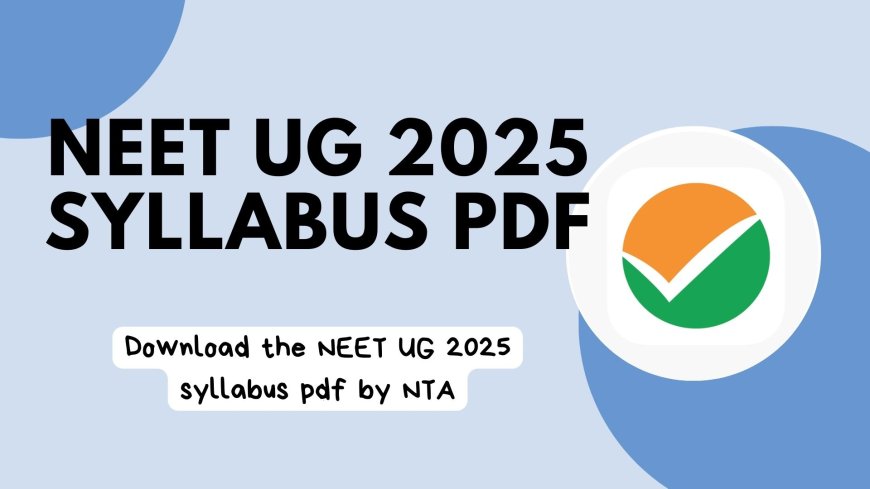
The National Medical Commission (NMC) has released the official syllabus for the National Eligibility-cum-Entrance Test Undergraduate (NEET UG) 2025. The syllabus includes topics from Physics, Chemistry, and Biology, aligning with the NCERT curriculum for Classes 11 and 12. Students preparing for the medical exam can download the NEET UG 2025 Syllabus pdf from the official website of NTA. There has been no major changes in the syllabus as compared to the previous year syllabus. The topics are mostly NCERT based. Below is a complete breakdown of the Class 11 and 12 topics covered in NEET UG 2025 Syllabus.
NEET UG 2025 Syllabus (Physics)
Class 11 Topics |
Class 12 Topics |
||
| Kinematics | Study of motion, including concepts of speed, velocity, acceleration, and graphical representations. | Current Electricity | Electric current, Ohm's law, circuits, and instruments. |
| Laws of Motion | Newton's laws, inertia, momentum, and applications. | Magnetic Effects of Current and Magnetism | Magnetic fields, Earth's magnetism, and electromagnetic induction. |
| Work, Energy, and Power | Definitions, work-energy theorem, power calculations, and conservation principles. | Electromagnetic Induction and Alternating Currents | Faraday's laws, inductance, and AC circuits. |
| Motion of Systems of Particles and Rigid Body | Center of mass, rotational motion, and moment of inertia. | Electromagnetic Waves | Wave spectrum and properties. |
| Gravitation | Universal law, gravitational potential, and satellite motion. | Optics | Reflection, refraction, wave optics, and optical instruments. |
| Properties of Bulk Matter | Elasticity, fluid mechanics, viscosity, and surface tension. | Dual Nature of Matter and Radiation | Photoelectric effect and matter waves. |
| Thermodynamics | Laws, concepts of heat, work, and internal energy. | Atoms and Nuclei | Atomic models, radioactivity, and nuclear reactions. |
| Behavior of Perfect Gas and Kinetic Theory | Gas laws, kinetic theory, and molecular speeds. | Electronic Devices | Semiconductors, diodes, transistors, and logic gates. |
| Oscillations and Waves | Simple harmonic motion, wave properties, and sound. | Electrostatics | Charge, electric field, potential, and capacitance. |
| Physical World and Measurement |
Fundamental concepts, units of measurement, dimensional analysis, and error analysis. |
|
|
NEET UG 2025 Syllabus (Chemistry)
Class 11 Topics |
Class 12 Topics |
||
| Some Basic Concepts of Chemistry | Mole concept, stoichiometry, and chemical calculations. | Solid State | Crystal structures, unit cells, and imperfections. |
| Structure of Atom | Atomic models, quantum numbers, and electronic configurations. | Solutions | Concentration terms, colligative properties, and Raoult's law. |
| Classification of Elements and Periodicity in Properties | Periodic table trends and properties. | Electrochemistry | Electrochemical cells, Nernst equation, and electrolysis. |
| Chemical Bonding and Molecular Structure | Bond theories, shapes of molecules, and hybridization. | Chemical Kinetics | Reaction rates, order, and mechanisms. |
| States of Matter | Gases, liquids, solids, and intermolecular forces. | Surface Chemistry | Adsorption, catalysis, and colloids. |
| Thermodynamics | Energy changes, enthalpy, entropy, and Gibbs energy. | General Principles and Processes of Isolation of Elements | Metallurgy and extraction methods. |
| Equilibrium | Dynamic equilibrium, Le Chatelier's principle, and ionic equilibrium. | p-Block Elements | Groups 15 to 18 elements. |
| Redox Reactions | Oxidation-reduction concepts and balancing equations. | d- and f-Block Elements | Transition metals, lanthanides, and actinides. |
| Hydrogen | Properties, hydrides, and water. | Coordination Compounds | Nomenclature, bonding, and applications. |
| s-Block Elements | Alkali and alkaline earth metals. | Haloalkanes and Haloarenes | Properties, reactions, and uses. |
| Some p-Block Elements | Group 13 and 14 elements. | Alcohols, Phenols, and Ethers | Preparation, properties, and reactions. |
| Organic Chemistry – Some Basic Principles and Techniques | Nomenclature, isomerism, and reaction mechanisms. | Aldehydes, Ketones, and Carboxylic Acids | Structure, reactivity, and mechanisms. |
| Hydrocarbons | Alkanes, alkenes, alkynes, and aromatic hydrocarbons. | Organic Compounds Containing Nitrogen | Amines, diazonium salts, and their reactions. |
| Environmental Chemistry | Pollution, ozone depletion, and green chemistry. | Biomolecules | Carbohydrates, proteins, nucleic acids, and enzymes. |
| Polymers | Types, synthesis, and applications. | ||
| Chemistry in Everyday Life | Drugs, detergents, and food additives. | ||
NEET UG 2025 Syllabus (Biology)
Class 11 Topics |
Class 12 Topics |
||
| Diversity in Living World | Exploration of living organisms, Taxonomical classifications and detailed study of botanical gardens, zoological parks, herbaria, and museums. | Reproduction | Mechanisms of reproduction in plants and animals, detailed study of human reproductive systems, Processes of fertilization and embryonic development. |
| Structural Organisation in Animals and Plants | Examination of plant tissues and anatomy, Analysis of animal tissues and their functions, Understanding the anatomy of various organisms. | Genetics and Evolution | Principles of inheritance and variation, Molecular basis of inheritance, Theories and evidence of evolution. |
| Cell Structure and Function | Study of cell theory and the structure of prokaryotic and eukaryotic cells, Insights into cell organelles and their functions, Overview of cell division processes. | Biology and Human Welfare | Role of microbes in human welfare, Concepts of human health and diseases, Strategies for the enhancement of food production. |
| Plant Physiology | Mechanisms of water and nutrient transport in plants, Processes of photosynthesis and respiration, Understanding plant growth and development. | Biotechnology and Its Applications | Principles and processes of biotechnology, Applications in agriculture, medicine, and industry, Ethical issues and concerns related to biotechnology |
| Human Physiology | Comprehensive study of the human digestive system, Insights into the circulatory and respiratory systems, Examination of excretory, nervous, and endocrine systems. | Ecology and Environment | Ecosystem dynamics and energy flow, Biodiversity and its conservation, Environmental issues and sustainable development. |
Click here to download the NEET 2025 Syllabus pdf by NTA.
NEET 2024 Chemistry Syllabus: Removed Chapters and Topics
Deleted Topics from Class 11 Chemistry
Unit I: Some Basic Concepts of Chemistry
Introduction to chemistry: Scope and significance.
Unit II: Structure of Atom
Atomic number, isotopes, isobars.
Concept of shells, subshells, and the dual nature of matter and light.
Unit V: States of Matter: Gases and Liquids
Three states of matter, intermolecular forces, types of bonding.
Gas laws: Boyle’s law, Charle’s law, Gay Lussac’s law, Avogadro’s law.
Ideal gas equation, Avogadro number, kinetic energy, molecular speeds.
Deviations from ideal gas behavior, liquefaction of gases, critical temperature.
Liquid state: Vapour pressure, viscosity, surface tension (qualitative study).
Unit IX: Hydrogen
Occurrence, isotopes, properties, preparation, and applications of hydrogen.
Hydrides: Ionic, covalent, and interstitial.
Properties and uses of water, heavy water, hydrogen peroxide.
Unit X: s-Block Elements (Alkali and Alkaline Earth Metals)
Overview, electronic configuration, trends in periodic properties.
Chemical reactivity trends, industrial and biological importance.
Preparation and properties of important compounds (e.g., sodium carbonate, sodium hydroxide, lime, limestone).
Unit XI: Some p-Block Elements
Important silicon compounds: Silicon tetrachloride, silicones, silicates, zeolites.
Unit XIII: Organic Compounds Containing Nitrogen
Cyanides and isocyanides (basic mention only).
Unit XIV: Environmental Chemistry
Pollution: Air, water, soil.
Smog, acid rain, ozone depletion, greenhouse effect, industrial pollution, green chemistry.
Deleted Topics from Class 12 Chemistry
Unit I: Solid State
Classification based on bonding forces, unit cell, packing efficiency, voids.
Density of unit cell, point defects, electrical and magnetic properties.
Band theory, conductors, semiconductors, insulators.
Unit V: Surface Chemistry
Adsorption, catalysis, colloidal states, Tyndall effect, Brownian movement.
Coagulation, emulsions, electrophoresis.
Unit XV: Polymers
Natural and synthetic polymers, polymerization methods.
Examples: Polyesters, bakelite, rubber, biodegradable polymers.
Unit XVI: Chemistry in Everyday Life
Role of chemicals in medicine, food, and cleansing agents.
Categories: Analgesics, antibiotics, antacids, antioxidants, detergents.
NEET 2024 Biology Syllabus: Removed Chapters and Topics
Deleted Topics from Class 11 Biology
Unit I: Diversity in the Living World
Definition of life, domains of life.
Species concept, taxonomic hierarchy, taxonomy tools (museums, herbaria, botanical gardens, zoos).
Angiosperm classification (up to class level).
Unit II: Structural Organisation in Animals and Plants
Animal tissues, frog anatomy (digestive, circulatory, respiratory, nervous, and reproductive systems).
Unit IV: Plant Physiology
Transport mechanisms in plants: Water, gases, nutrients.
Cell-to-cell transport: Diffusion, osmosis, facilitated diffusion, active transport.
Water relations: Imbibition, plasmolysis, transpiration pull, guttation.
Nutrient absorption, translocation, mass flow hypothesis.
Nitrogen metabolism, nitrogen fixation, hydroponics.
Growth and development: Seed dormancy, vernalization, photoperiodism.
Unit V: Human Physiology
Digestive system: Enzymes, absorption of macronutrients, caloric values.
Digestive disorders: Indigestion, constipation, diarrhea, jaundice.
Neural control: Reflex action, structure and function of the eye and ear.
Deleted Topics from Class 12 Biology
Unit I: Reproduction
Modes of reproduction: Asexual and sexual.
Asexual reproduction: Binary fission, sporulation, budding, fragmentation.
Vegetative propagation in plants.
Unit III: Biology and Human Welfare
Food production techniques: Plant breeding, tissue culture, apiculture, animal husbandry.
Unit V: Ecology and Environment
Population ecology, adaptations, ecosystem patterns, nutrient cycles.
Environmental pollution: Air, water, agrochemical effects, radioactive waste.
Global environmental issues: Greenhouse effect, ozone depletion, deforestation.
Case studies on environmental success stories.
Read More: What Documents Required for NEET Registration 2025
NEET 2024: Newly Added Topics
New Additions in Physics
Class 11
- Kinematics: Vector resolution.
- Gravitation: Satellite motion, time period, and energy calculations.
- Properties of Bulk Matter: Fluid pressure, Pascal’s law, gravity effects on pressure.
- Kinetic Theory: RMS speed of gas molecules, degrees of freedom, Avogadro’s number.
Class 12
- Magnetic Effects of Current and Magnetism: Temperature effects on magnetic properties.
- Dual Nature of Matter and Radiation: Radiation properties.
- Experimental Skills: Hands-on familiarity with measurement tools, optics, resistance calculations, calorimetry, and circuit analysis.
New Additions in Chemistry
- Structure of Atom: Bohr model derivations, limitations.
- Chemical Bonding: Kossel-Lewis theory, Fajan’s rule, metallic bonding.
- Thermodynamics: First and second laws, Gibbs energy, Hess’s law.
- Electrochemistry: Conductivity, electrode potential, Nernst equation, fuel cells.
- Chemical Kinetics: Pressure and collision theory.
- d and f Block Elements: Transition elements overview.
- Organic Chemistry: Purification and characterization of compounds, functional group detection, hydrocarbon classification.
- Practical Chemistry: Qualitative analysis, salt analysis, titrations, enthalpy measurements.
New Additions in Biology
- Structural Organisation in Animals and Plants: Study of selected plant families (Malvaceae, Cruciferae, Leguminosae, Compositae, Gramineae).
- Genetics and Evolution: Molecular basis of inheritance, protein biosynthesis.
- Biology and Human Welfare: Human diseases (dengue, chikungunya), tobacco abuse.
- Ecology and Environment: Biodiversity conservation, sacred groves.
This revised syllabus outlines the modifications made for NEET 2024, ensuring aspirants focus on the relevant topics while being aware of recent additions to their study material.
Read More: How to Prepare for NEET 2025 Exam without Coaching
Expected Changes in NEET UG 2025 Syllabus (If Any)
The National Medical Commission (NMC) keeps the NEET UG 2025 syllabus unchanged according to its current information. The curriculum serves all topics from Physics Chemistry Biology which follows the NCERT standards for Classes 11 and 12. Job seekers need to follow the official updates that NMC and NTA release as the basis for remaining updated about potential alteration in NEET UG 2025 syllabus.
NEET 2025 Exam Pattern
The examination pattern should be understood by students to build effective preparation methods. This edition of NEET UG 2025 examination incorporates a specific structure which constitutes:
- The examination will take place in offline format with paper and pen as the required tools.
- Duration: 3 hours and 20 minutes
- There are 200 multiple-choice questions (MCQs) present in the exam but candidates must complete 180 questions.
- Subjects Covered: Physics: 50 questions (45 to be answered) Chemistry: 50 questions (45 to be answered) There are 100 Biology questions which must be answered among 90 Botany and 90 Zoology queries.
- Every subject contains two clearly defined sections for the examination. Section A: 35 questions (all compulsory) The B section contains fifteen questions from which applicants need to complete ten.
NEET 2025 Marking Scheme
There are three components of the NEET UG 2025 marking scheme which include four points for correct responses and one point minus for incorrect responses along with no score for empty or reviewed answers. Correct Answer: +4 marks Incorrect Answer: -1 mark (negative marking) The unanswered sections and those submitted for review do not result in either positive or negative marks. The scheme functions to highlight precise answering since wrong solutions lead to score reduction. Importance of Knowing the Syllabus for Effective Preparation Students who understand the NEET UG 2025 syllabus benefit from various advantages. Through focused approach to study students minimize the time spent on unneeded information. Due to time management effectiveness you should distribute your preparation time according to topic weightage. The choice of appropriate resources that follow the syllabus framework leads to more beneficial learning results.
How to Prepare for NEET 2025 Syllabus
An effective preparation process combines purposeful design with disciplined management of tasks. The detailed syllabus requires students to become familiar with its contents to identify their subject strengths and weaknesses. Develop a practical time management plan which divides study sessions between subjects and built-in revision blocks. Your education materials must start with NCERT textbooks which form the base knowledge before continuing with advanced study resources. Previous year question papers alongside mock tests should be used for practice on a regular basis to check your preparation level. Frequent revision sessions stabilize academic knowledge and boost its durability for long-term memory storage.
Best Books for NEET: Biology, Physics, and Chemistry
Selecting the right study materials is pivotal for success. Here are some recommended best books for NEET preparation 2025 for each subject:
Biology:
"NCERT Biology Class XI and XII" – Fundamental for concept clarity.
"Biology Vol 1 and Vol 2" by Trueman – Offers in-depth coverage and practice questions.
Physics:
"NCERT Physics Class XI and XII" – Essential for understanding basic concepts.
"Concepts of Physics" by H.C. Verma – Provides clear explanations and problem-solving techniques.
Chemistry:
"NCERT Chemistry Class XI and XII" – Crucial for building foundational knowledge.
"Physical Chemistry" by O.P. Tandon – Detailed explanations and practice problems.
"Organic Chemistry" by Morrison and Boyd – Comprehensive coverage of organic chemistry topics.
These books are widely recommended for their alignment with the NEET syllabus and their effectiveness in concept building.
Frequently Asked Questions:
Q1: Have any chapters been removed from the NEET 2025 syllabus?
Ans: Yes, the NEET 2025 syllabus has been revised. The National Medical Commission has reduced the syllabus from 97 chapters to 79 chapters. Several topics being removed or modified in NEET 2025 syllabus.
Q2: Were any chapters added to the NEET 2024 syllabus?
Ans: No, the NEET 2024 syllabus did not see the addition of new chapters. The syllabus focus was on streamlining existing content rather than introducing new topics.
Q3: What is the exam pattern for NEET 2025?
Ans: The NEET 2025 exam pattern includes three subjects: Physics, Chemistry, and Biology. Each subject comprises 50 questions, divided into two sections: Section A with 35 questions and Section B with 15 questions. Candidates need to answer 45 questions from each subject.
Q4: Which chapters are important in Chemistry for NEET 2025?
Ans: The main chapters in Chemistry for NEET 2025 include:
- Chemical Bonding
- p-block Elements
- Coordination Compounds
- General Organic Chemistry
- Aromatic Compounds
- Mole Concepts
- Thermodynamics
- Equilibrium
Q5: Which chapters carry high weightage in the NEET Physics syllabus?
Ans: Chapters in Physics with significant weightage for NEET include:
- Electromagnetic Induction and Alternating Currents
- Optics
- Electrostatics
- Current Electricity
- Magnetic Effects of Current and Magnetism
Q6: Which chapters carry high weightage in the NEET Biology section?
Ans: Important chapters in Biology for NEET include:
- Genetics and Evolution
- Ecology and Environment
- Plant Physiology
- Human Physiology
- Human Reproduction and Reproductive Health
- Animal Kingdom
- Origin and Evolution
Q7: What are the important chapters in the NEET 2025 syllabus?
Ans: For NEET 2025, focus on the following chapters:
- Physics: Electromagnetic Induction and Alternating Currents, Optics, Electrostatics, Current Electricity, Magnetic Effects of Current and Magnetism.
- Chemistry: Chemical Bonding, p-block Elements, Coordination Compounds, General Organic Chemistry, Aromatic Compounds, Mole Concepts, Thermodynamics, Equilibrium.
- Biology: Genetics and Evolution, Ecology and Environment, Plant Physiology, Human Physiology, Human Reproduction and Reproductive Health, Animal Kingdom, Origin and Evolution.
Q8: Where can I find the NEET UG 2025 syllabus?
Ans: The NEET UG 2025 syllabus is available on the official National Medical Commission (NMC) website.
Q9: Does the NEET syllabus contain 97 chapters?
Ans: No, the NEET syllabus has been reduced from 97 chapters to 79 chapters for the 2025 examination.
Q10: Is the NEET syllabus changing for 2025?
Ans: Yes, the NEET 2025 syllabus has undergone some changes. The number of chapters were reduced from 97 to 79. Several topics have been removed or modified to streamline the content.
What's Your Reaction?









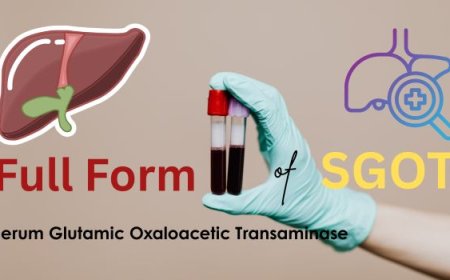

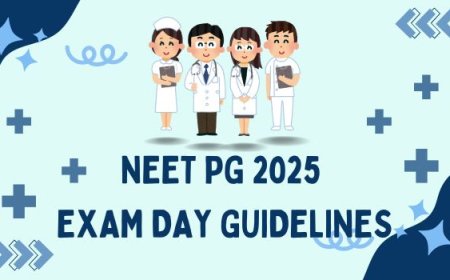



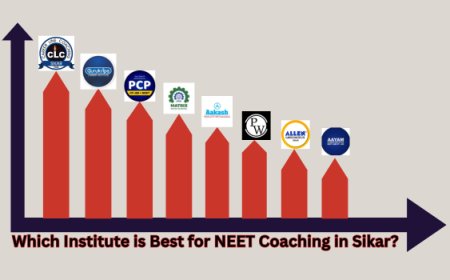

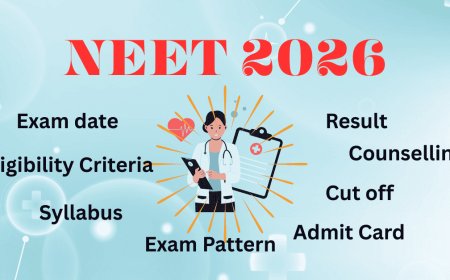
![What is the Difference Between NExT and NEET PG? [Updated 2025]](https://neetcoachingsikar.com/uploads/images/202504/image_430x256_680fd17ee9715.jpg)










![How Many Candidates Appeared in INI CET 2025? [Official Numbers Inside]](https://neetcoachingsikar.com/uploads/images/202505/image_140x98_682db1a9daa26.jpg)

